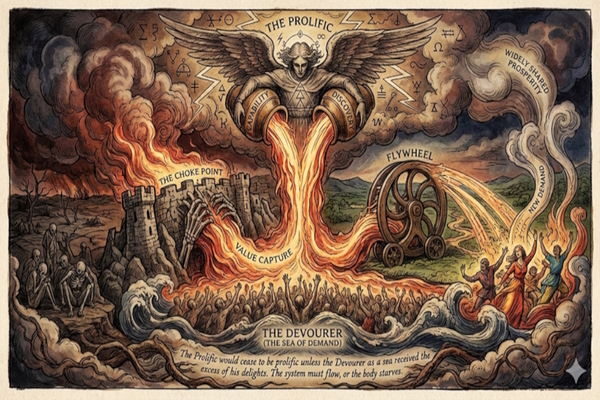ERP - the cure for the UK's manufacturing skills gap
Shane Taylor at ECI Software Solutions discusses how ERP is helping to cure manufacturers of the skills crisis

A lack of skills is the biggest barrier to growth, according to 75% of manufacturers in Britain. With the global market under immense volatility, it’s no wonder manufacturing firms are turning to ERP solutions for support.
The technical skills gap has long challenged manufacturers across the UK, particularly SMEs. However, today’s cloud-based ERP technology is changing that narrative. By capturing institutional knowledge, automating low-value tasks, and creating accessible training pathways, ERP systems help businesses grow their talent from within.
To thrive in today’s market, manufacturers must invest in both digital tools and upskilling the workforce. As an investment in people and education, digital tools such as cloud-based ERP systems are making sure Britain’s manufacturing workforce is being upskilled in a competitive and volatile global market. More than just a digital tool, an ERP system represents a new approach to productivity, curating knowledge, embedding best practices, and optimising workflows that prioritise continuous learning.
Building a generational wealth of knowledge
Reliance on outdated technology and data systems means that knowledge is not being sufficiently passed on to new generations of workers. Too often, knowledge and best practices are shared informally through word of mouth from a handful of experienced professionals acting as ‘knowledge hubs’. This approach is unsustainable, placing pressure on a singular individual to act as a knowledge vessel for new hires as well as preventing the wider growth and efficiency of manufacturing firms.
Learning directly from industry experts is invaluable; but depending solely on shadowing and word of mouth alone limits progress. ERP systems change this dynamic by creating a shared and accessible knowledge base that builds on the experience of previous generations.
For example, ERP systems document each process in detail, ensuring that critical step-by-step procedures are followed in accordance with company policy. They provide visual tools such as flowcharts to guide workers through each task, helping to eliminate ambiguity. In addition, ERPs strengthen knowledge transfer by embedding standardised workflows which show pre-defined or system-driven sequences of tasks for the employee to ensure compliance but also illustrate best practices within the industry.
This accomplishes two things. First, it expands access to curated knowledge and training resources, allowing employees to upskill more quickly and confidently. Second, it makes the training process more efficient by unlocking insights that were previously siloed or lost within legacy systems - turning individual expertise into collective capability.
Creating higher value
ERPs are also fundamentally reshaping how work is distributed across business areas allowing employees to work smarter and more efficiently. By automating repetitive, admin-heavy tasks, or shifting certain processes to customer self-service, ERPs free up time for more impactful work.
For senior professionals, this means more time can be spent on higher-value tasks such as exploring new business opportunities. For junior employees, it allows more time to develop skills rather than being tied down by routine admin. As new hires can expand their skill set, productivity rises and teams can focus on proactive development rather than low-value tasks. This places the business and employees in a cycle of evolution and improvement.
Widening the talent pool
As the manufacturing industry embraces digital transformation, it is becoming almost unrecognisable from the traditional factory floor of the past. This wave of innovation is also expanding the talent pool, with new innovations creating demand for new skills in areas such as AI, IT, and software.
By adopting new technologies, manufacturers can also entice a new generation of technologically skilled workers. According to the World Economic Forum, only 14% of Gen Z said industrial work was a career they would consider; but on the flip side, 27% of Gen Z and Gen Alpha have shown a preference to work for a business that is on the cutting edge of AI, robotics, and new technology.
Through ERP implementation, manufacturing firms can not only streamline operations but also redefine their appeal to younger generations. Smart manufacturing solutions are helping to bridge the skills gap by shifting the profile of talent the industry requires towards roles that are data-driven, innovative, and future-ready.
A central system for tomorrow’s workforce
Together, these elements contribute to both economic growth and the professional advancement of Britain’s manufacturing workforce. ERP systems are far more than a tool for streamlining operations. They are central ecosystems that power an organisation, enhancing workforce management, boosting productivity, and providing critical data insights.
Finding and retaining skilled talent remains a significant challenge. The generational knowledge captured and retained through an ERP system is vital for reducing staff turnover, increasing knowledge retention, and improving onboarding. With ERP technology, manufacturers can unlock a workforce that is more productive, more confident, and more agile – ready to meet the demands of a rapidly changing industrial landscape.
Shane Taylor is a Manufacturing Technical Specialist at ECI Software
Main image courtesy of iStockPhoto.com and Phynart Studio

Business Reporter Team
Most Viewed
Winston House, 3rd Floor, Units 306-309, 2-4 Dollis Park, London, N3 1HF
23-29 Hendon Lane, London, N3 1RT
020 8349 4363
© 2025, Lyonsdown Limited. Business Reporter® is a registered trademark of Lyonsdown Ltd. VAT registration number: 830519543





